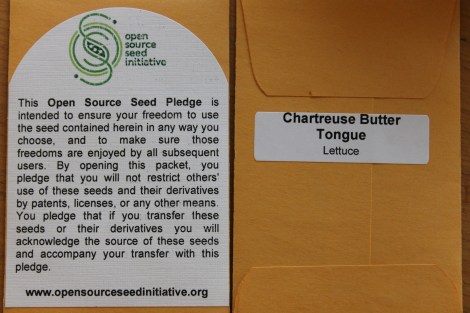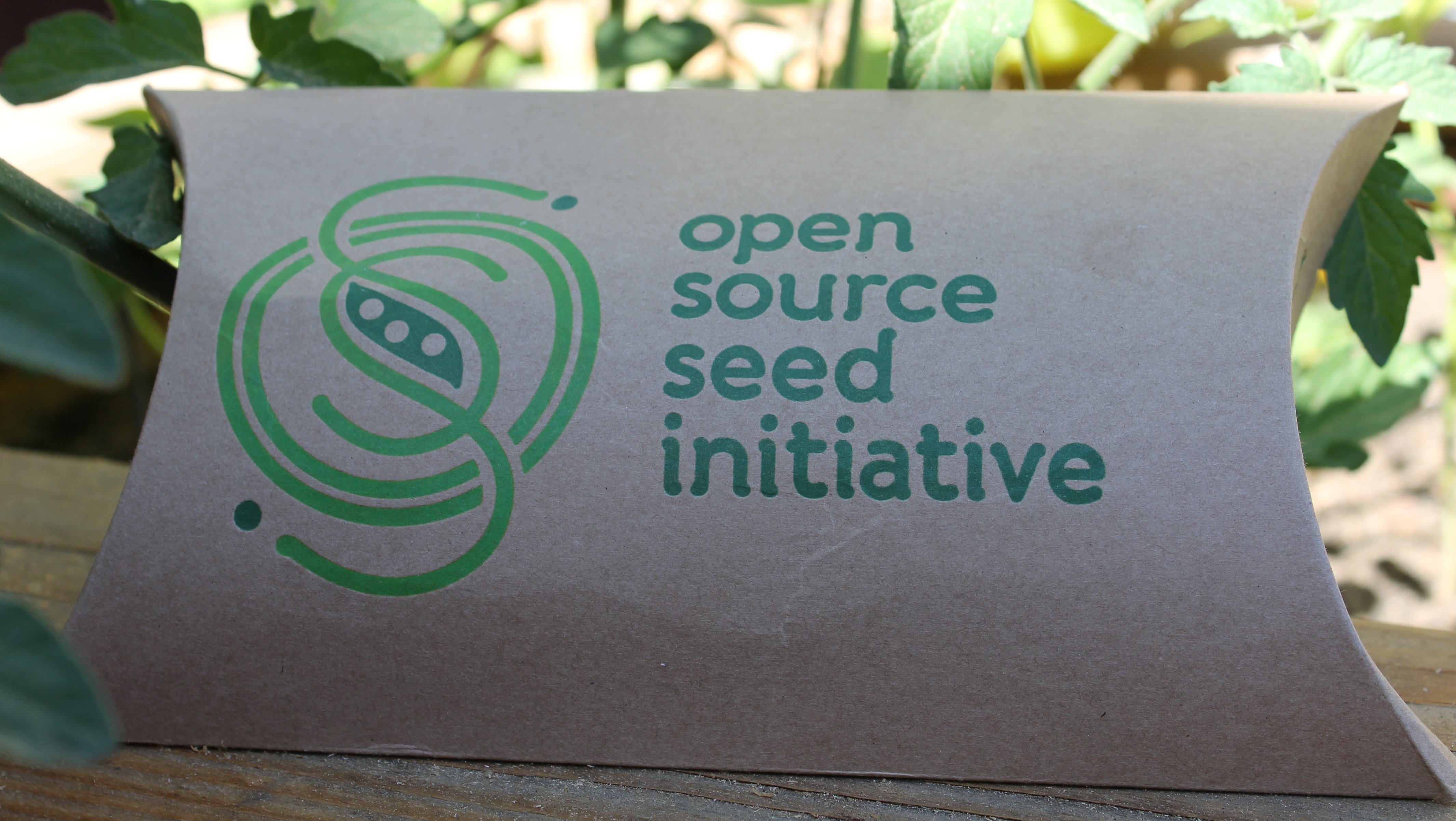Does this seem fair? A plant breeder at a public university manages to grow a long-necked broccoli that, for easy cutting, stands tall above its leaves. Then a company that has used his creation to breed a slightly different broccoli submits it for a patent, claiming ownership over the very idea of long-necked broccoli.
So far, the company, Monsanto subsidiary Seminis, has failed to persuade the U.S. Patent Office to grant it a broad “utility patent.” But Seminis has appealed. If it succeeds, the original breeders, who shared their seeds freely, could be barred from working with their own seeds.
Surely there’s a better way.
This story launches Lisa Hamilton’s beautifully written piece in the Virginia Quarterly Review on open-source seeds: Linux for Lettuce. It’s the kind of longread that both deserves and demands the sort of focus that’s hard to achieve if you are connected to the internet.
Hamilton has done enough research to provide an authoritative tour, and she’s a graceful enough writer to capture not only what people say but how they say it. Broccoli-breeding Oregon State University geneticist Jim Myers, for example:
… has dark hair and dark eyes that are often set behind tinted glasses. In public, he rarely registers enough emotion to move the thick mustache framing his mouth. Still, as he talked about the broccoli his voice buckled, and behind those shadowy lenses his eyes looked hard and tense.
The proposed solution is something I’ve written about before: The Open-Source Seed Initiative (OSSI) has started to look for a way to make un-patentable seeds. The idea is that, if a breeder like Myers declared his broccoli seeds were open source, then companies like Seminis would be barred from using them to create sweeping patent claims.

But there’s a problem: Unlike software — which falls under copyright law — an open-source contract on seeds is not enforceable (if someone first patents the seeds, then declares them open source, you could enforce the open-source contract, but that’s not likely to happen). The open-source seed movement had wanted to create “a national park of germplasm,” a protected common treasure for all. To really achieve this goal they’d need to get legislators to change laws. And they are trying to do that, but it takes a long time.
In the meantime, open-source seeds are proliferating anyway. I received a package full of them recently: There’s packets of red ursa kale, sovereign carrots, white salmon spelt, lemon pastel calendula, red head quinoa, and hyper red rumple waved lettuce. (You can get these crazy seeds here.) Each packet bears a pledge: just three sentences saying that these seeds shall not be patented. It may not be legally binding, but it would sure be awkward to explain to a judge that you’d used genetics bearing this pledge to stake your claim of private ownership.
As Hamilton puts it:
[I]t’s almost as if [the open-source campaigners] have replaced seeds as software with a new metaphor — one inspired by plant breeding itself. Instead of building a protective barrier, OSSI would reach out into the world as widely as possible. Each time open-source seed was shared, the message on the packet would germinate in new minds: It would prod the uninformed to question why seeds would not be freely exchanged — why this pledge was even necessary. It would inspire those who already knew the issues of intellectual property to care more and spread the word. As the seed multiplied, so would the message. With three simple sentences, OSSI would propagate participants in the new movement like seedlings. They would breed resistance.
There’s more where that poetic passage came from, including a brief history of how seed patents evolved. Seriously, check it out.



